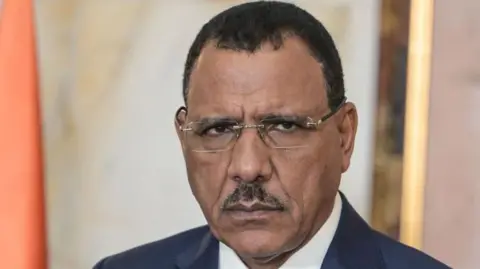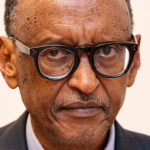In August 2023, Niger experienced a seismic shift in governance when military leaders deposed President Mohamed Bazoum. The coup, justified by the military on grounds of insecurity and mismanagement, has sparked international concern and condemnation. However, recent developments have revealed a rather perplexing dynamic within the new regime: the release of several ministers while the ousted president remains under detention, raising questions about the military leaders’ true agenda and plans for governance.
Since taking power, Niger’s military junta, self-identified as the National Council for the Safeguard of the Homeland (CNSP), has portrayed itself as a stabilizing force, restoring order amid escalating violence from extremist groups. As a measure to consolidate their control, the junta has selectively released some high-ranking officials from Bazoum’s government. These releases appear aimed at garnering support from sections of the political elite and reassuring the public that a return to civilian governance is possible.
However, the continued detention of President Bazoum is striking. Reports suggest that Bazoum has been held in isolation, denying him contact with the outside world, friends, and family. During his presidency, Bazoum, a former interior minister, was critical of coups and the military’s role in politics; thus, his continued imprisonment raises suspicions about the junta’s intentions. By keeping Bazoum in custody, the military leadership may be attempting to preemptively eliminate any possible resurgence of a civilian government that could threaten their newfound power.
Niger’s political landscape is fraught with tension. The decision to release ministers while holding the president captive has drawn criticism from local and international observers. For many, this raises concerns about the military’s commitment to genuine democratic principles. Notably, Amnesty International and other human rights organizations have echoed these sentiments, calling for the unconditional release of Bazoum and other political prisoners.
Meanwhile, the military’s narrative centers around the claim that they are the guardians of national security, facing an Al-Qaeda-affiliated insurgency and Boko Haram militants. The junta asserts that its rise to power is a necessary step to combat the increasing terrorism in the Sahel region and restore stability. Yet this justification becomes difficult to reconcile with the selective treatment of former officials and the draconian measures taken against the ousted president.
Furthermore, there are fears that the junta’s prolonged rule could lead to further instability. The longer the military remains in power, the greater the risks of undermining long-term democratic structures that the country desperately needs. In addition, the population is deeply divided over their loyalties to the military or the former president, complicating the prospect of a united front against common threats.
The junta’s actions and decisions reveal a precarious balance of power that could either lead to renewed democratic processes or entrench military rule. As regional and international organizations continue to monitor Niger’s situation, the true test of the junta’s intentions will rely on its ability to transition to a civilian-led government and to treat all political figures, including President Bazoum, with fairness.
In conclusion, Niger’s military leaders face a complex set of challenges that will define not only their leadership but also the country’s political future. While they have managed to free several ministers in a bid to stabilize perceptions and gain favor, the ongoing detention of President Bazoum is telling of deeper political currents at play. As this situation unfolds, the world watches closely to see if Niger can navigate a path towards unity and peace, or if it will remain ensnared in cycles of conflict and military dominance.
Email Us on editorial@nnafrica.com













